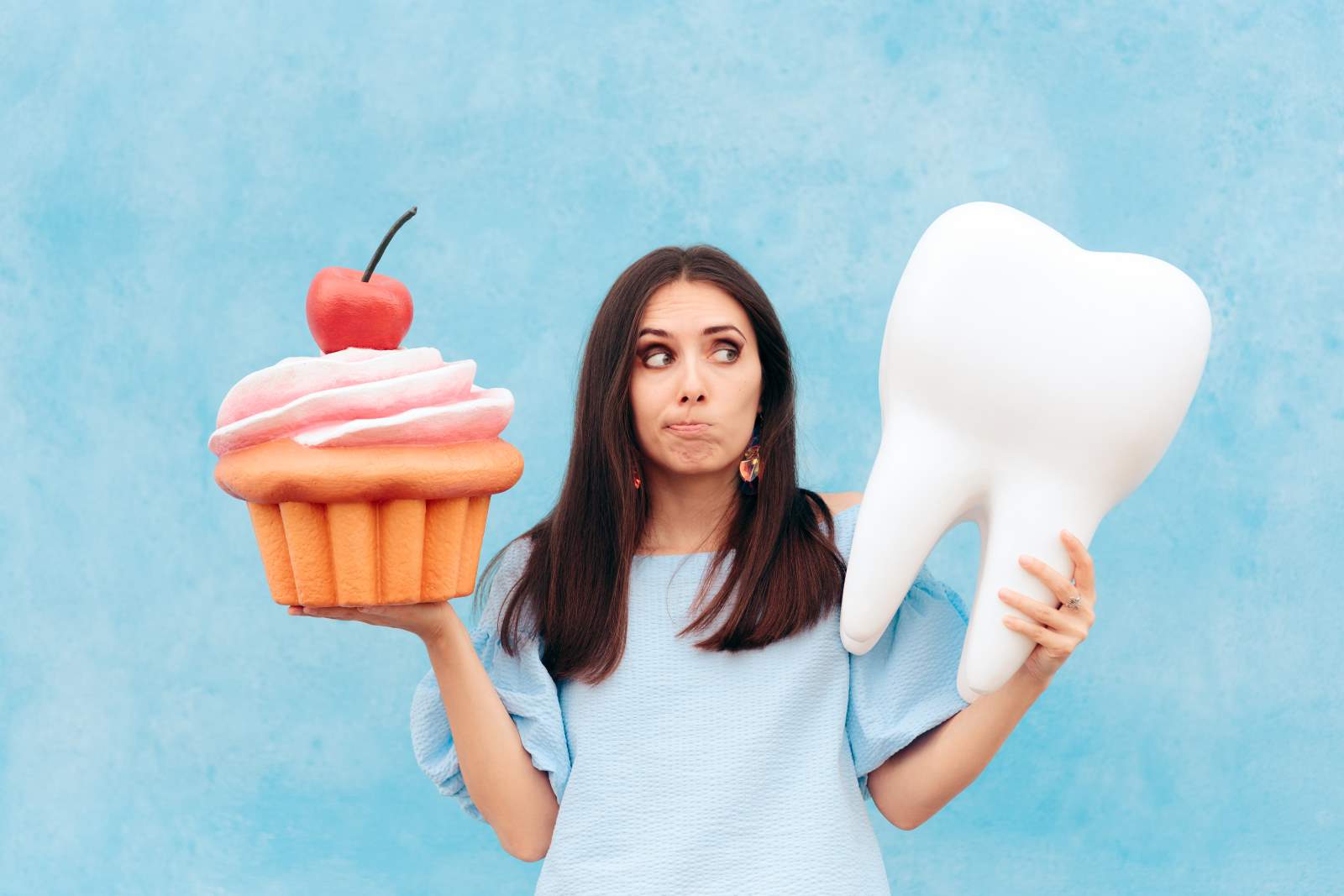You may be unaware that your mouth is home to bacteria. That’s part of being human. However, some foods and drinks can cause plaque buildup, which can lead to serious oral issues. Plaque is filled with harmful bacteria that cause tooth decay. Almost 90% of adults aged 20 to 64 years in the USA have experienced tooth decay, much of which is caused by foods to avoid for tooth enamel health. The best way to prevent this plaque from turning into a gum disease is to know what causes it.
We know you follow dental preventive care, but is that enough? Dolphin Dental experts suggest that limiting or avoiding the foods below can keep your gums healthy and plaque-free forever.
1. Sour Candies
No matter how much you like the mouth-watering tingling in sour candies, they aren’t great for your teeth. Sour candies have high levels of acids that can weaken your enamel faster. In addition, the sticky texture of these candies makes them cling to your teeth, increasing the risk of decay. If you’re craving something sweet, go for a piece of chocolate. It’s easier to chew and won’t stick to your teeth for long.
2. Bread
Not many people know that when you chew on bread, your saliva breaks the starches down into sugars. You may have felt a sticky, paste-like substance trapped in the spaces between your teeth after eating bread. This is what leads to cavities. It’s important to choose whole wheat or less-refined bread options. These break down more slowly and don’t have as much added sugar.
3. Alcohol
Alcohol is not only harmful to your body but also to your oral health. People who consume alcohol are well aware of its dehydrating effects. Alcohol dries out your mouth because it reduces saliva production. All those extra food particles left in your mouth after a meal are washed away by your saliva. It also helps repair early signs of decay. So, try limiting your alcohol consumption if you want to protect your smile. When/if you do drink, make sure to drink plenty of water.
4. Carbonated Drinks
We are not the first ones to warn you against sodas, and we won’t be the last. Soft drinks are one of the many leading causes of dental damage. Even diet sodas can lead to harmful dental erosions in the long term. The carbonation in soft drinks causes plaque to produce more acid that attacks tooth enamel. If you’re sipping on soda throughout the day, you’re exposing your teeth to acid constantly. Dark sodas can even stain your teeth.
Tip: Avoid brushing your teeth immediately after drinking soda. Your tooth enamel is weak after sodas, and brushing them right away can speed up the erosion.
5. Ice
It’s just frozen water, so how bad can it be, right? Unfortunately, chewing on hard ice can chip or crack your teeth. It can even damage any dental crowns you have. Ice is safe for chilling your drinks, but chewing on it can severely damage your tooth enamel. And if you feel pain in your gums with anything as cold as ice, you better get it checked by a dental professional.
6. Citrus
Oranges, lemons, and grapefruits are packed with vitamin C but are also full of acid that can wear down your tooth enamel. This leaves your teeth more vulnerable to decay. Even squeezing lemon into water adds acid that can harm your teeth. If you enjoy citrus fruits, try to have them during meals and rinse your mouth with water afterward to minimize the damage.
7. Potato Chips
The satisfying crunch of a potato chip can be hard to resist, but it contains starch that turns into sugar once chewed. This sugar can get stuck between your teeth, feeding plaque bacteria and causing decay. Since eating just one is hard, the acid from these snacks lingers in your mouth. Be sure to floss after enjoying chips to remove any trapped particles.
8. Dried Fruits
Dried fruits like raisins or apricots may seem like a healthy snack, but they’re sticky and cling to your teeth. The sugars in these fruits get trapped in your teeth’s crevices, increasing your risk of cavities. While more research is needed on this topic, it’s best to rinse your mouth with water and brush your teeth after eating dried fruits. Fresh fruits are a better option since they contain less concentrated sugar.
Conclusion
Certain foods can harm tooth enamel, and items that may cause discomfort to sensitive gums should be avoided. Always consult a dental professional for advice on enjoying food while maintaining dental health. Schedule a consultation with Dental Dolphin today to help maintain regular dental hygiene and prevent dental damage.
Comments are closed.

